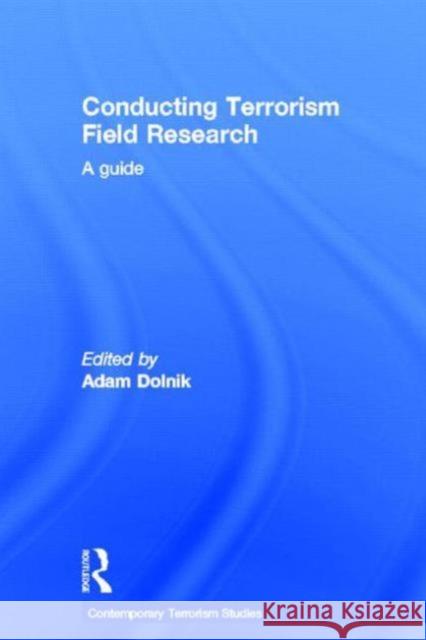Conducting Terrorism Field Research: A Guide » książka
Conducting Terrorism Field Research: A Guide
ISBN-13: 9780415609302 / Angielski / Twarda / 2013 / 280 str.
Conducting Terrorism Field Research: A Guide
ISBN-13: 9780415609302 / Angielski / Twarda / 2013 / 280 str.
(netto: 741,76 VAT: 5%)
Najniższa cena z 30 dni: 705,23
ok. 16-18 dni roboczych.
Darmowa dostawa!
This book offers a detailed and practically oriented guide to the challenges of conducting terrorist fieldwork. The past decade has seen an explosion of research into terrorism. However, field research on terrorism has traditionally been surrounded by many myths, and has been called anything from "necessary" and "crucial" to "dangerous," "unethical" and "impossible." While there is an increasing interest among terrorism specialists in conducting such research, there is no single volume providing prospective field researchers with a guideline to such work. This edited volume aims to fill this gap and offers a collection of articles from experienced authors representing different risk groups, disciplines, methodological approaches, regional specializations, and other context-specific aspects. Each contributor provides a road-map to their own research, describing planning and preparation phases, the formalities involved in getting into conflict zones, gaining access to sources, managing contacts, interviewing militants in the field, detailed discussion on the risks involved, ethical dilemmas, translation issues, effective interviewing and rapport-building steps, and other practical aspects of conducting field research. The text will also help researchers set realistic expectations of how the process of interviewing militants and secretive government sources in conflict zones is organized, what the likely outcomes are, and assist with many other practical issues such as how to navigate through challenges posed by government forces unsympathetic to researchers, how to reduce risk of physical harm when travelling in conflict zones, how to behave at hostile checkpoints, how to answer specific questions militants tend to ask prior and during interviews. The end product is a 'how to' guide to field research on terrorism, which will be of much value to terrorism experts and novices alike, providing detailed insights into the challenges and obsta











